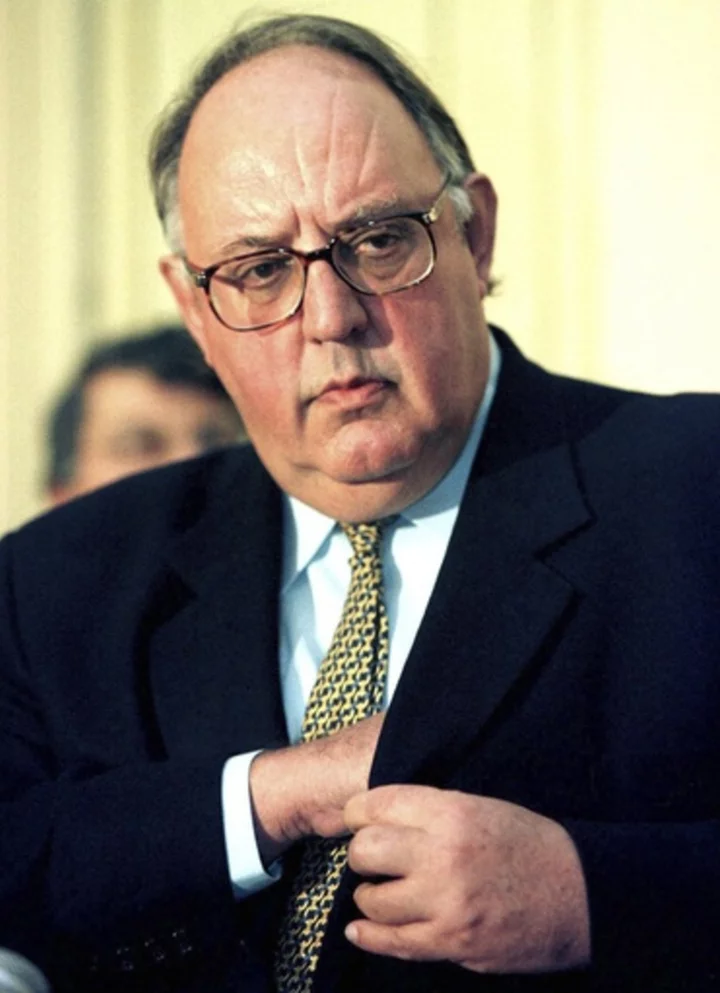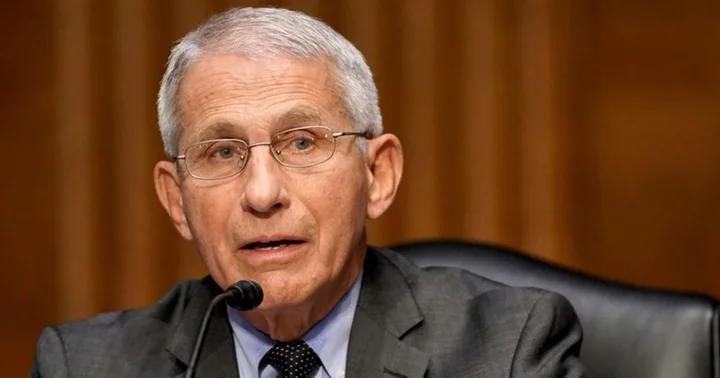ATHENS, Greece (AP) — Theodoros Pangalos, a former Greek foreign minister known for his undiplomatic outbursts and on whose watch Greece suffered one of its most embarrassing foreign policy debacles in 1999, has died. He was 84.
Pangalos' family said on Twitter that he died on Wednesday “peacefully at home, surrounded by his family and close associates.”
Caretaker Prime Minister Ioannis Sarmas' office expressed condolences, as did other leading Greek politicians. A statement from Sarmas' office praised the “dynamic and decisive” former minister who stood out for his “sharp and substantial intellect.”
Born on Aug, 17, 1938, Pangalos was the grandson of a former Greek military dictator. He studied law in Athens and economics in Paris, was involved in left-wing politics and actively opposed the new military regime of 1967-1974.
He became a senior official in the Socialist Pasok party, founded by Andreas Papandreou, that dominated the political scene in most of the 1980s and 1990s, but inherited the country's financial crisis in 2009 and gradually imploded — together with the public finances.
It was during the early stages of the crisis, amid deep income cuts, soaring unemployment and furious anti-austerity protests, that Pangalos uttered the phrase for which he will perhaps be most remembered, and has been widely reviled.
“The answer to the opprobrium the country's politicians face from people asking ‘how did you squander the money?’ is this: 'We gave you public sector jobs. We all ate from the trough,” Pangalos said in Parliament in 2010.
“It was all in the framework of a relationship of political clientelism, corruption, bribery and debasement of the very meaning of politics,” he added.
At the time, he was deputy prime minister in the Socialist government of George Papandreou — Andreas' son — and his comments were condemned as cynical, unfair and insensitive. At the same time, his defenders argued that he had offered a harsh but largely accurate epitaph to three decades of Greek politics, in which he had played a significant part.
Pangalos went on to write a book called “We all ate from the trough,” but never held public office after 2012.
He had a long history of unguarded remarks, having managed, as foreign minister in the 1990s, to offend Germany — which he compared to a “giant with a child's brain” — and Turkey, after he referred to Turks as “thieves and rapists.”
Days after Pangalos became foreign minister in January 1996, Greece and Turkey came to the brink of war over two uninhabited eastern Aegean Sea islets, known as Imia in Greece and Kardak in Turkey. Turkish commandos captured one of them as the two countries' navies congregated to the spot, but left under a U.S.-brokered agreement.
A greater embarrassment came in 1999, when neighboring Turkey's most wanted fugitive, Abdullah Ocalan, the head of the secessionist Kurdistan Workers' Party (PKK), was smuggled into Greece without the government's knowledge. Greece's foreign ministry made a ham-handed bid to get rid of the hot potato by sneaking Ocalan out of the country and trying to hide him in the Greek Embassy in Kenya. The secret was badly kept, and Ocalan was eventually delivered to Kenyan authorities, ending up on a plane to Turkey where life imprisonment awaited him.
Apart from the Foreign Ministry, Pangalos held a succession of government posts, including the culture portfolio, under Andreas Papandreou and in other Pasok governments.
Center-right former Prime Minister Kyriakos Mitsotakis, who is expected to win a general election on June 25, praised Pangalos on Wednesday for his “intelligence, cosmpolitanism, humor and courage,” and extolled his commitment to Greece's place in the European Union as well as his contribution to Cyprus' EU accession.
Pangalos is survived by his five children. No funeral arrangements were announced.









